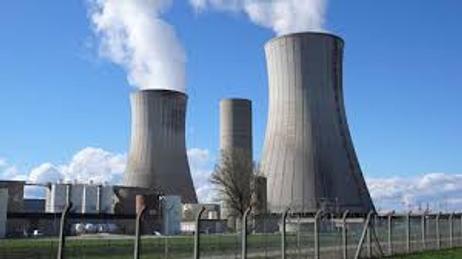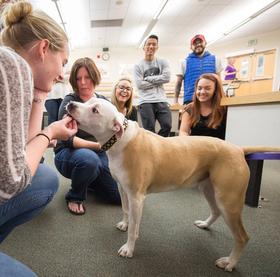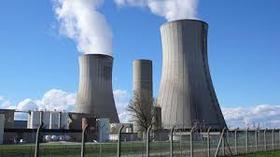As our country continues to search for alternative energy sources, the field of nuclear technology becomes a larger piece of the pie. The knowledge, land, and resources are in place to open nuclear plants across the country – but there is one element lacking. Skilled technicians will be needed to work in these new plants, particularly in light of the fact that thousands of current nuclear technicians are slated for retirement over the next five years, according to a recent report in the New York Times.
As many as 40 community colleges across the nation have heeded the call and are now providing programs to train a new generation of nuclear technicians. These programs can be completed in a fraction of the time of a standard four-year degree, with most associate's degrees earned in two years or less. Both high school graduates and adults looking for a career change can capitalize on these programs, moving into an industry that pays well and is much more secure in terms of growth and stability.
What is a Nuclear Technician?
Education-Portal describes the role of a nuclear technician as one who operates and maintains equipment in nuclear power plants. As specialists in nuclear energy, they might also assist scientists in the field of research.
Many professionals get their foot in the nuclear door with just a two-year associate's degree, and their first job could earn around $50,000 per year. The New York Times estimates that experienced nuclear technicians may make as much as $80,000, and those with a four-year degree can bring in six figures.
The U.S. Bureau of Labor Statistics predicts a nine percent growth rate in jobs between 2008 and 2018 as interests turn to alternative energy sources. However, this prediction is based on the current nuclear plants open for business today. The job outlook with the addition of new nuclear plants would undoubtedly increase tenfold, particularly as one-third of the current workforce is reaching retirement age.
This video offers an overview of the nuclear training program at Central Virginia Community College.
A Piece of the Action
Where do you go to get a piece of the action? While community colleges across the country are offering nuclear technician programs, there are a few key areas to monitor when weighing the job prospects for this industry.
Georgia
Atlanta-based Southern Co. believes it is ready to break ground on the first nuclear plant in 30 years – if it can staff the plant to keep it running. A report in The Daily Record in Maryland states that Southern Co. predicts they will be able to provide 850 new jobs to the local community by 2017, as long as there are workers trained to take those positions at that time. The Daily Record also indicates that plans to build a wave of nuclear reactors would require the addition of 12,000-21,000 new workers. Augusta Technical College is one of the institutions in Georgia offering training in this area.
Texas
According to the New York Times, the South Texas Project in Bay City currently operates two nuclear plants and plans to begin construction on two more by 2012. Clarence Fenner, workforce development coordinator for the South Texas Project, told the New York Times that available jobs and good starting salaries were just the beginning of the opportunities for these community college graduates. Fenner said, "We tell these young people, and they understand, that they are becoming part of something important. This nuclear renaissance is important for our community, our state and our country."
Ohio
First Energy in Ohio has posted a page on its website encouraging individuals to invest in a training program that may land them a position in their company right out of school. In addition to jobs as nuclear workers, First Energy is also recruiting the following:
- Line workers
- Substation electricians
- Fossil and nuclear operators
The company website includes a listing of colleges in the area that offer programs in these specific fields of study. Lakeland Community College in Lakeland, Ohio, is offering a nuclear training program.
As community colleges begin partnering with the industries in their communities, they can offer students a solid education and better job prospects after graduation. In the case of the nuclear power industry, it appears those prospects will continue to improve well into the future.
Questions? Contact us on Facebook. @communitycollegereview















